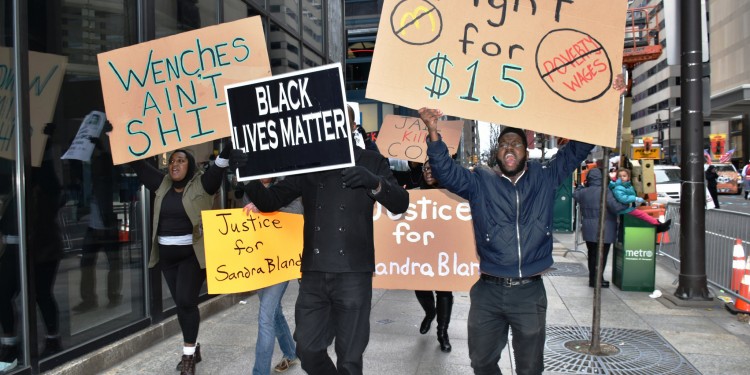
It may be that in 20 or 30 years we will look back to 2015 as the year that things really began to change in the U.S. This was the year we saw the intersection of the movement for higher wages and Black Lives Matter really begin to crystalize.

It may be that in 20 or 30 years we will look back to 2015 as the year that things really began to change in the U.S. This was the year we saw the intersection of the movement for higher wages and Black Lives Matter really begin to crystalize.
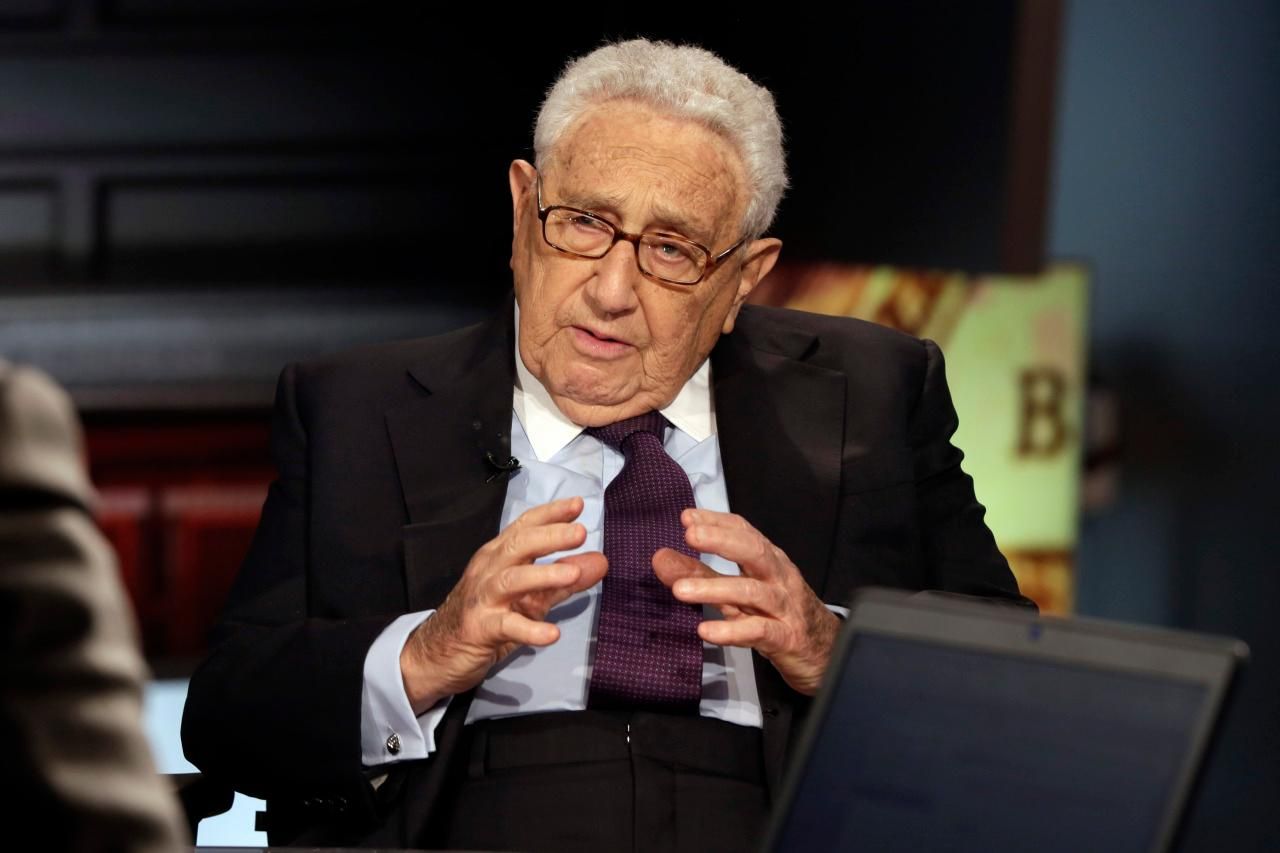
Bernie Sanders’s dropping the hammer on Clinton’s cozying up to the vile genocidaire Henry Kissinger was one of the fist pump moments of the campaign. That’s recognized by pretty much everyone now, so I don’t need to say much about it here.
The godfather of macro-level power structure research in the United States was the sociologist C. Wright Mills, author of The Power Elite (1956).
 Arthur Henry Young (1866-1943), known to the world as Art, was arguably the most widely recognized and beloved cartoonist in the history of American radicalism. A working cartoonist for sixty years, Art Young drew thousands of simple black-line drawings with biting captions that appeared in big-city newspapers, liberal magazines, and, most importantly, in the socialist, labor, and radical press of the early twentieth century.
Arthur Henry Young (1866-1943), known to the world as Art, was arguably the most widely recognized and beloved cartoonist in the history of American radicalism. A working cartoonist for sixty years, Art Young drew thousands of simple black-line drawings with biting captions that appeared in big-city newspapers, liberal magazines, and, most importantly, in the socialist, labor, and radical press of the early twentieth century.
The American Dream, that fantasy of growth that has long girded the ideology of entrepreneurship and a better future, is in crisis. Many haven’t felt the dream for decades, some never having experienced it at all. Robert Putnam, in his latest work, Our Kids, seeks to confront this stagnation in our economic dreams by interrogating the forces that have taken hold of communities across the United States.
 Now as usual, ten past nine; I certainly will not go on beyond ten past ten. And I would like to say at once that this is the task. It is so difficult that it is as well to say at the beginning that it can be done. Five hundred and eighty-three pages [Oliver Cox’s Caste, Class and Race: A Study in Social Dynamics].
Now as usual, ten past nine; I certainly will not go on beyond ten past ten. And I would like to say at once that this is the task. It is so difficult that it is as well to say at the beginning that it can be done. Five hundred and eighty-three pages [Oliver Cox’s Caste, Class and Race: A Study in Social Dynamics].
In 1971 the Institute of the Black World (IBW) was at a crossroads. Founded in 1969 by historian Vincent Harding, literary scholar Stephen Henderson, and other scholars in the colleges that comprised the Atlanta University Center (AUC), as well as with the support of leading national researchers of the African American experience, the IBW served as the intellectual wing of the Martin Luther King Center.
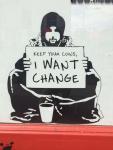 Americans today face a dual crisis: rising rents and increasingly unaffordable housing markets. The housing crisis, far from being over, has metastasized.
Americans today face a dual crisis: rising rents and increasingly unaffordable housing markets. The housing crisis, far from being over, has metastasized.
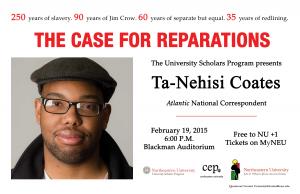
The following is a segment from Doug Henwood‘s Behind the News, January 21, 2016. Henwood is interviewing Adolph Reed. Audio link here.
DH: We’ve got Ta-Nehisi Coates citing the call for reparations and finding Sanders guilty of hostility towards reparations. What do you think of his critique?
AR: I read the thing in The Atlantic and it’s so utterly empty and beside the point, I can’t even characterize it.

The lead-poisoning disaster in Flint, Michigan is more than a shocking public health failure. It is an assault on human rights – a recognition that has been largely absent from most discussions of how and why this could have happened in the advanced industrial democracy of the United States. It is arguably the largest discrete violation of its type since the infamous and grossly unethical Tuskegee syphilis medical study of the last century. The water poisoning in Flint was finally forced into official recognition by a brave and stubborn pediatrician, Dr. Mona Hanna-Attisha, who documented what was really happening to Flint’s vulnerable children and other residents.
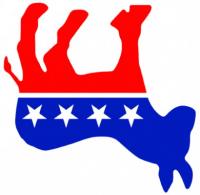 Senator Bernie Sanders’ run for the Democratic Party nomination for president has certainly energized thousands. It has also rekindled an old debate on the American left that revolves around the question: Should the left join, endorse, support, or work for campaigns in the Democratic Party?
Senator Bernie Sanders’ run for the Democratic Party nomination for president has certainly energized thousands. It has also rekindled an old debate on the American left that revolves around the question: Should the left join, endorse, support, or work for campaigns in the Democratic Party?
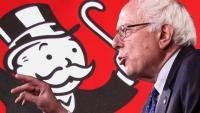 Some months ago I responded to a piece that appeared on the New Politics blog by my longtime fellow NP editorial board member and friend Barry Finger.1 In my own blog, I argued that Barry had a better, more sophisticated understanding of the peculiarities of the Democratic Party and the U.S.
Some months ago I responded to a piece that appeared on the New Politics blog by my longtime fellow NP editorial board member and friend Barry Finger.1 In my own blog, I argued that Barry had a better, more sophisticated understanding of the peculiarities of the Democratic Party and the U.S.
 Outside powers have had a long and shameful history of cynically supporting dictatorships in the Middle East because maintaining friendly autocratic states in the region suits their geopolitical objectives. And today those criminal policies are flagrantly on display.
Outside powers have had a long and shameful history of cynically supporting dictatorships in the Middle East because maintaining friendly autocratic states in the region suits their geopolitical objectives. And today those criminal policies are flagrantly on display.

The necessity of working-class internationalism must surely be one of the left’s most invoked truisms, providing the semblance of a solution to the problems facing embattled workers and governments of the left. But too often the concept is deployed in vague, even contentless ways. The global economic crisis has put the issue of ‘internationalism’ into greater focus – particularly, perhaps, in Europe, where political and monetary union is in question as never before.

Howard Brick and Christopher Phelps. Radicals in America: The U.S. Left Since the Second World War. New York: Cambridge University Press, 2015. 355 pp. Photos. Bibliography. Index.
Howard Brick’s and Christopher Phelps’ Radicals in America, covering the period from 1939 to 2014, is a masterful narrative history of the left of our time, an account that integrates the experience of the post-war left into American political, economic, and social history, with an eye to the cultural context as well.

Red Rosa: A Graphic Biography of Rosa Luxemburg, Kate Evans, Verso, 2015, paperback, $16.95
Capitalism and Climate Change: The Science and Politics of Global Warming, David Klein (author) and Stephanie McMillan (editor and illustrator), Amazon digital services, 2015, eBook, $2.95
Gene Basset’s Vietnam Sketchbook: A Cartoonist’s Wartime Perspective, Thom Rooke, Syracuse University Press, 2015, paperback, $24.95
My War, Szegedi Szüts, Dover, 2015, paperback, $12.95
The graphic lit juggernaut rolls on. Even as DC and Marvel crank out superhero comics at roughly the same pace they have for the past twenty or thirty years, trade publishers and university presses are issuing nonfiction narrative art on a scale that would have been unthinkable a decade ago. Back in the day, the four books under review would have represented a significant percentage of like-minded cartooning to appear in any given season. Now practically every publishing house under the sun boasts a new graphic novel line or at very least a fistful of titles aimed at the words-and-pictures market.

Puerto Rico is undergoing a profound fiscal crisis. Our country is besieged by the big interests of Wall Street’s credit agencies and vulture funds, which as they’ve done in other parts of the world, such as Spain, Greece and Argentina, only seek an uncontrolled increase in their profits. These profits come at the cost of great sacrifices to working people, which include drastic cuts to social services that will have a special impact on education and health care.
In order to impose their inhumane demands, they use their powerful influence within government structures, in the courts and in the mass media to guarantee payment of the immoral and odious debt, with no concern for the deterioration of our quality of life and the elimination of hard-won labor rights. They establish, de facto, a dictatorship of oligarchic and monopoly capital over the whole of society, the working class majority stripped of the financial resources needed to insure a dignified subsistence.
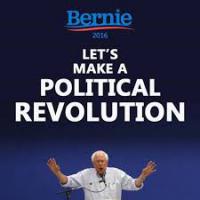
Even a somewhat cynical 71 year old socialist like me could be thrilled to see Bernie Sanders talking about the need for an American political revolution on MSNBC. To be honest, I’m not sure that I ever expected to see a leading presidential candidate say we need a revolution on prime time TV.
When Bernie Sanders says we need a political revolution, he’s mostly talking about turning many thousands of new people out to vote. That would obviously be a very good thing. It’s just not enough to win the meaningful social changes that would add up to a political revolution.
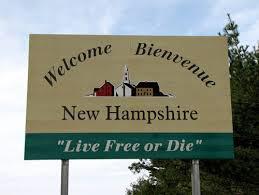
They don't put the slogan “Live Free or Die” on New Hampshire license plates for nothing!
There has been an inspiring statewide local union response to SEIU's predictably short-sighted headquarters embrace of Hillary Clinton. This Sanders endorsement comes from public workers who know Bernie well because they live and work just across the Connecticut River from Vermont–or, in some cases, are Vermonters themselves.
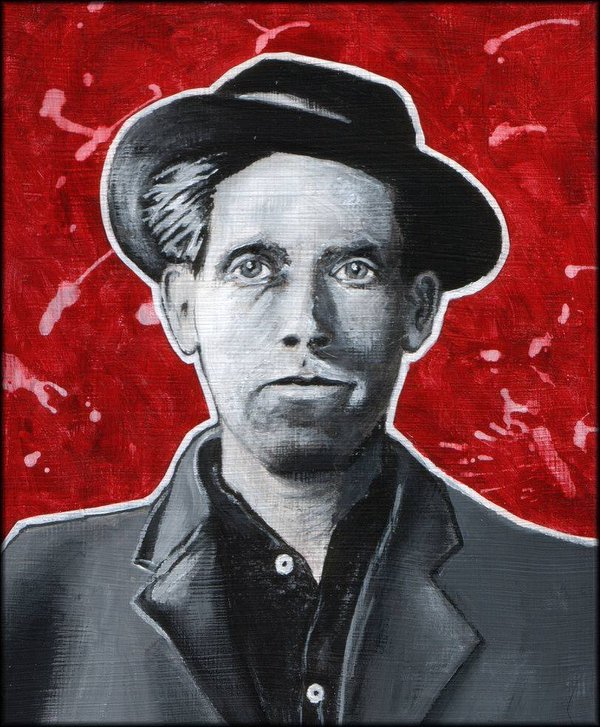
Almost a century ago, the socialist journalist John Reed wrote of the Industrial Workers of the World, popularly known as the Wobblies, “Remember, this is the only American working-class movement which sings. Tremble then at the IWW, for a singing movement is not to be beaten.” On the other hand, the sheriff of San Diego complained of his jails filled with Wobblies, “I do not know what to do. I cannot punish them. Listen to them singing all the time, and yelling and hollering, and telling the jailers to quit work and join the union.”
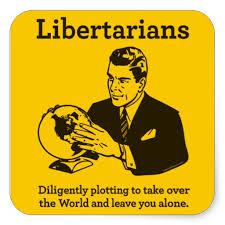
This story begins where all good stories do; I hit a bit of a rut with the second to last chapter of my dissertation, a dissertation which looks at the psychological aspects of capitalism that undermine arguments for global justice that are deeply entrenched in the liberal political-philosophical tradition. When I get stuck, I try to motivate myself by reminding myself how necessary this kind of demystifying critical scholarship is. Naturally, I usually turn to Fox News for such motivation. However, for whatever reason, I decided to look on Facebook for something that would piss me off and send me on a writing blitz.